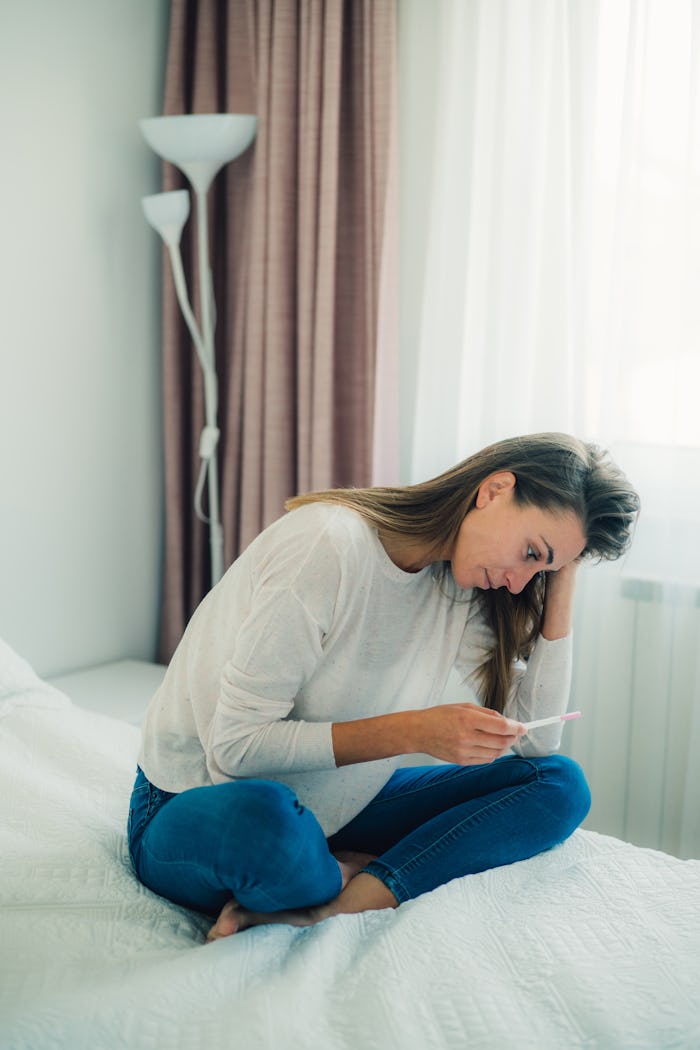Life

What Does Ovulation Pain Feel Like? An OB-GYN Describes That Twinge
You’re going about your day when all of a sudden, you feel a sharp pain in your side. It nearly doubles you over, and you wonder what it could be. Your period was a couple of weeks ago, so menstrual cramps can be ruled out. You know you could be ovulating, but what does ovulation pain feel like? As it turns out, many women experience pain during ovulation, but what it feels like can vary greatly.
According to the Cleveland Clinic, the pelvic pain that some women experience during ovulation is referred to as mittelschmerz, a German term meaning “middle pain,” referring to how the pain occurs in the middle of your cycle.
Dr. Candice Fraser, M.D., Fellow of The American Congress of Obstetricians and Gynecologists (F.A.C.O.G.) from Trinity Medical Care in New York tells Romper that about 14 days prior to your next menstrual period, women can experience pain caused by the growing follicle due to ovulation. "The pain would be on one side of the pelvis, and for most, it will be mild. It can feel similar to period pain — crampy, sharp, and achy," she says.
Some women do experience more moderate or severe pain occasionally, Fraser notes, and the pain lasts anywhere from a couple of hours to 48 hours.
Ovulation pain can also sometimes be accompanied by nausea or slight vaginal bleeding, according to the National Health Service (NHS) of the U.K. Though ovulation pain is typically harmless, it can sometimes be a sign of a larger medical issue.
Endometriosis and sexually transmitted infections can both cause inflammation around the fallopian tubes that may lead to ovulation pain, as NHS mentioned. Scar tissue from previous surgeries, like an appendectomy or C-section, can also lead to additional pain during ovulation.
If you are in excessive pain, the pain lasts longer than two or three days, or is accompanied by heavy bleeding, be sure to run it past your doctor to rule out any other medical conditions.
Otherwise, a warm bath or hot compress can help to ease the pain. Kicking your feet up can also bring some comfort. There’s no doubt everyone could use a warm bath and long nap, and in this case, it’s highly recommended.
This article was originally published on